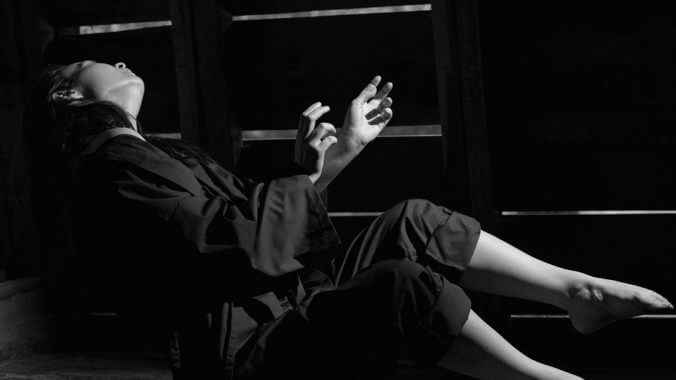Album of the Week | Mitski: The Land is Inhospitable and So Are We
On her stirring and orchestral seventh album, Mitski blazes a glorious new trail and sounds freer than ever

Mitski has been working on her own time lately. As 2021 drew to a close, the enigmatic artist emerged from a hiatus from public life, diving headfirst into a heavy press cycle of features and interviews to promote her sixth album, the austere and alienated Laurel Hell. In both the songwriting and in public spheres, she expounded on her feelings of discontent with her art and the way the world consumed it. Its lead single “Working for the Knife” pointed directly at her frustration with lines like “I used to think I’d be done by 20 / Now at 29, the road ahead appears the same” and “I always thought the choice was mine / And I was right, but I just chose wrong.” Its video, filmed within Albany, NY’s brutalist monument and performance space The Egg, ended with her performing an exaggerated, clownish dance set to no music, just applause, her own exasperated panting and the bashing of her fists on the stage. The message was clear: Mitski’s return would not be uncomplicated. After wrapping up a massive tour to support Laurel Hell, Mitski retreated again, but not for long.
To the surprise of anyone who bought into the idea that Laurel Hell would be the last we heard from Mitski for some time, she sent a newsletter out in late July and, in an accompanying, strangely simple video, Mitski waved to the camera and informed us that new music was imminent—and that her new album was called The Land is Inhospitable and So Are We. The wordy title suggests a record exploring a blighted land, and the ugliness we wrought upon it—but this is not Mitski’s climate change album.
Instead, she has given us her most challenging work to date; an album that finds her staring in the mirror, examining how much she struggles to find space for all the love and hope her spirit carries. Its bounty is a burden. While not explicitly told from her own point of view, the surreal narrative of “The Deal” explores the lengths she’ll go to get rid of her soul, hoping it’s easier to go on without it. “I want someone to take this soul / I can’t bear to keep it” she pleads. A thundering bass and violin arrangement swells as she makes this choice, underscoring the gravity of what she’s done before receding back to soft guitar strums. She spots a bird who, to her surprise, speaks. The bird, like the Devil explaining this Faustian bargain, informs that even without the weight of her soul, there is no freedom—“you’re a cage without me.”
Mitski’s seventh album feels, all at once, like a much-needed course correction away from 80s style synths growing staler with each use and like her lowest stakes release yet. The towering expectation and deafening hype that surrounded Laurel Hell seemed to have died down, leaving her free to exhale. The Land is Inhospitable and So Are We finds Mitski breaking new ground, building transcendent songs with the accompaniment of acoustic guitars, pedal steel, a string section and an entire 17-person choir. These resplendent pieces fit together to form fascinating, delicately arranged songs.
-

-

-

-

-

-

-

-

-

-

-

-

-

-

-

-

-

-

-

-

-

-

-

-

-

-

-

-

-

-

-

-

-

-

-

-

-

-

-

-








































